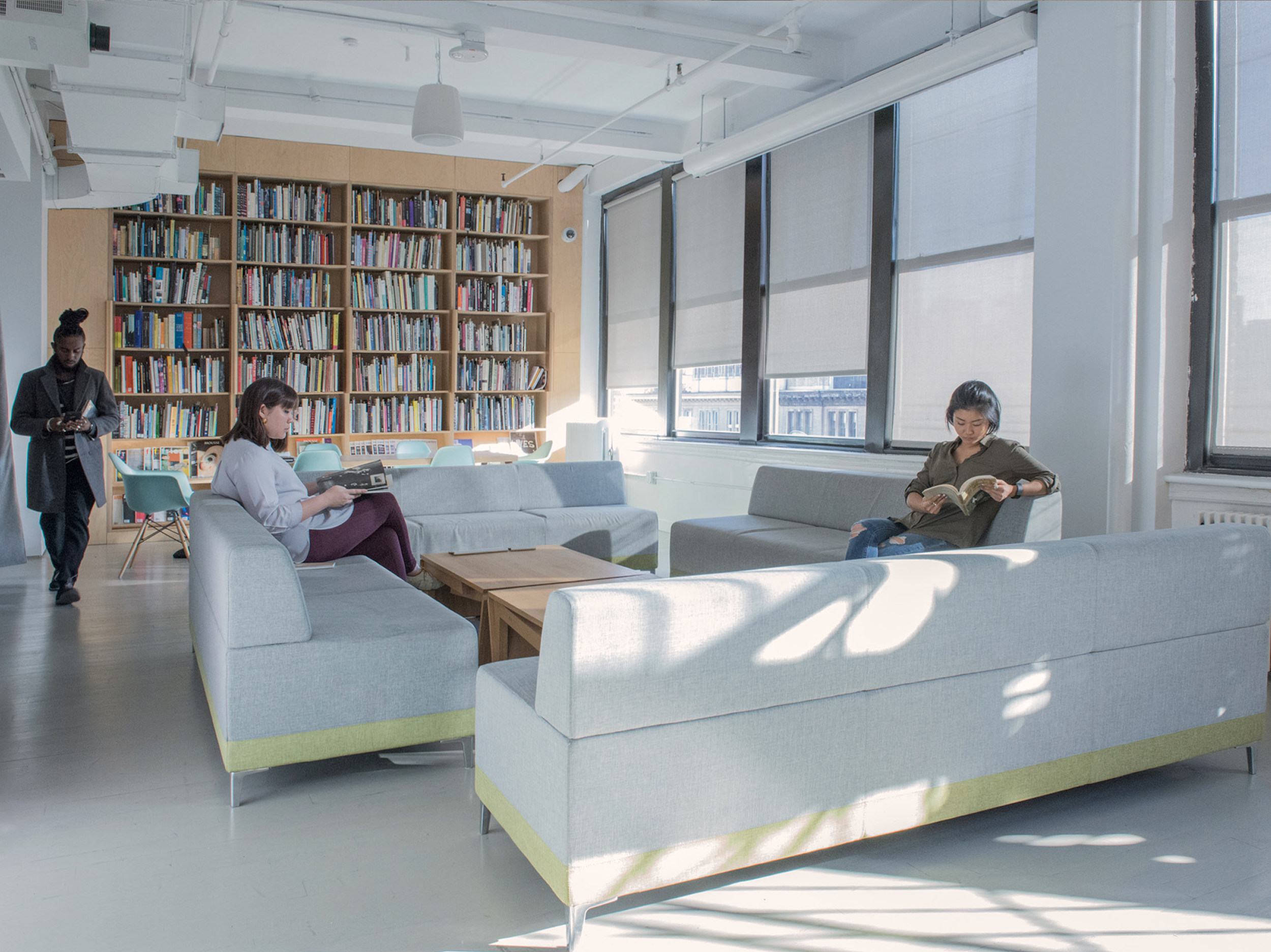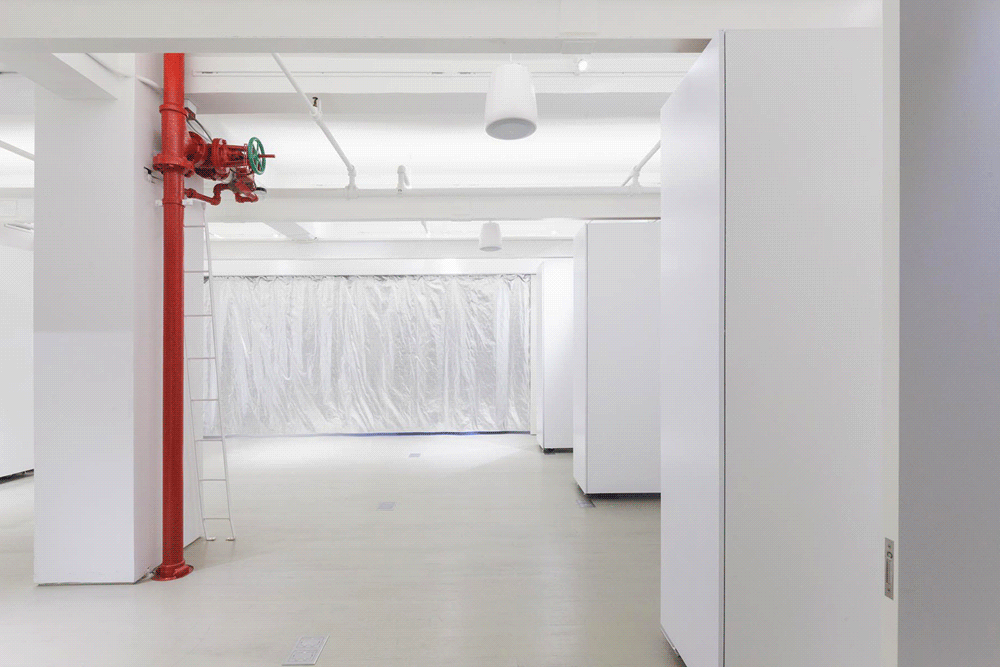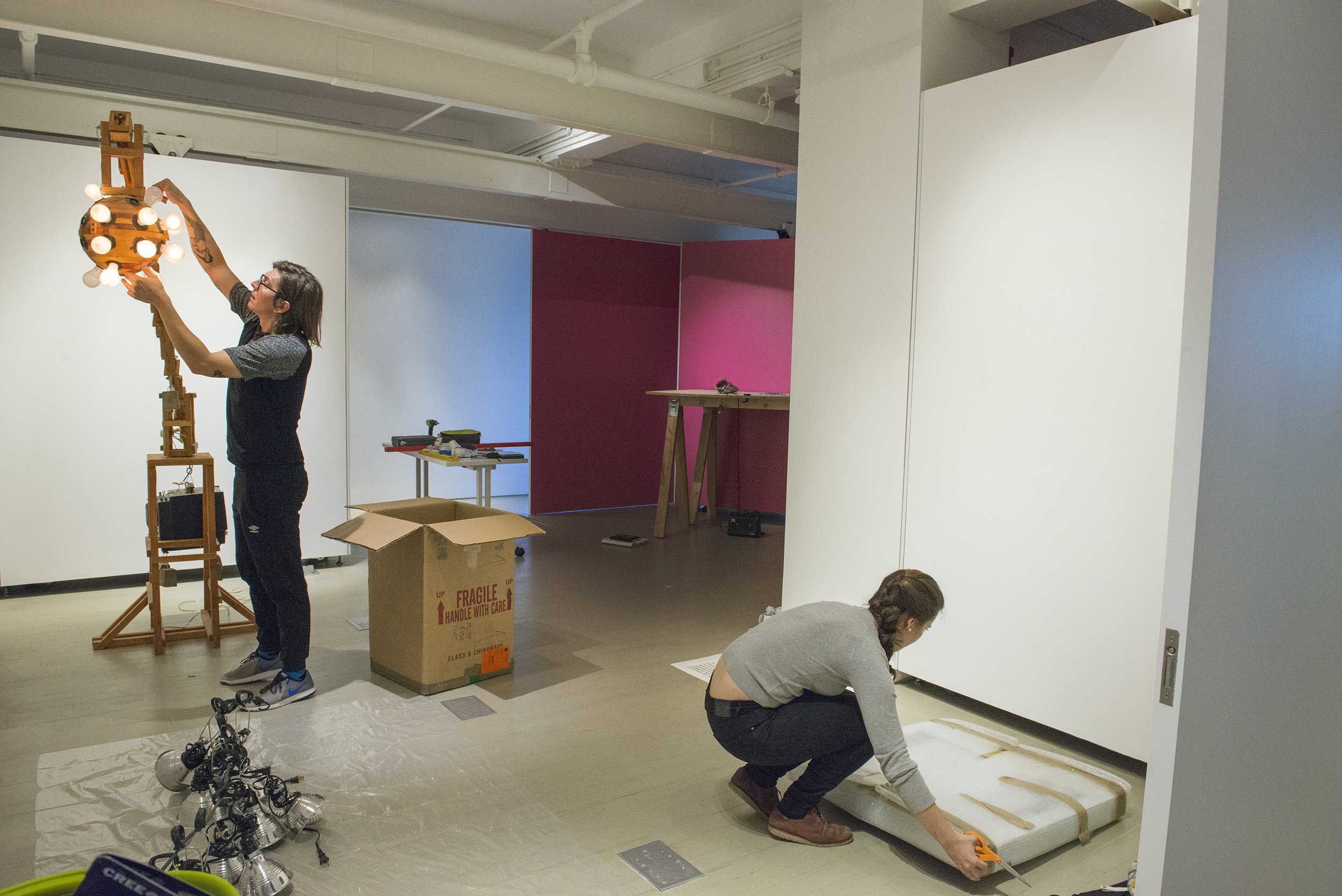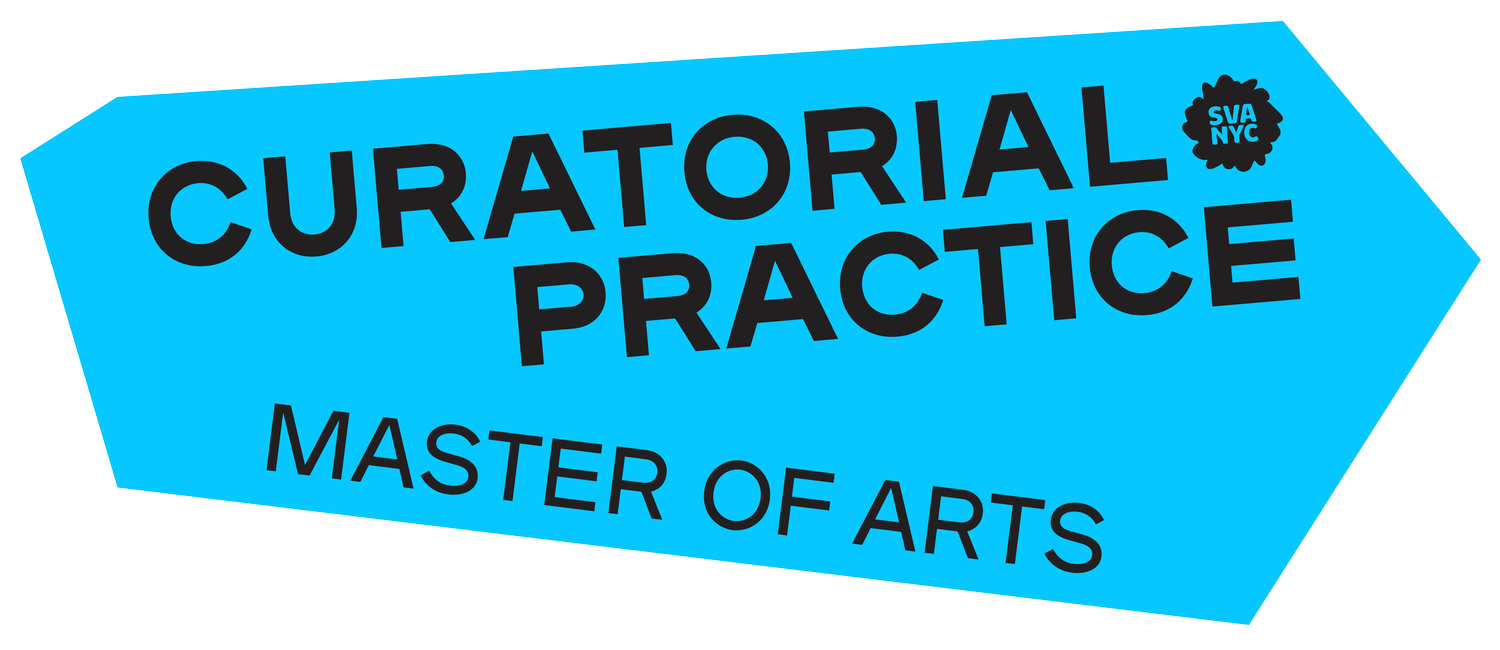
About the Program
The Master of Arts degree in Curatorial Practice (MACP) is a two-year program that focuses on professional art-related training with a thorough grounding in the relevant study of history, research, and theory, with an emphasis on hands-on work with art experts in the field, professional networking, and the foremost goal of placing graduates of the program in curatorial jobs. The program takes full advantage of the vast number of arts institutions and professionals on the doorstep of the School of Visual Arts in Chelsea and throughout New York City, providing countless opportunities for curatorial study, mentoring, and professional development. Our faculty members all work as curators, directors, or other professionals at major New York institutions. Guest lecturers are curators, artists, conservators, writers, architects, critics, and theorists who join us in person or online to talk about their exhibitions, programs, projects, and events.
From its inception, our program has taken its mandate practical, historical, and theoretical work, along with keen attention to issues of equitable inclusiveness and social justice in society and the many ways in which curators can address the profound concerns we face now. Our students, faculty, guests in our classes, and speakers in our regular schedule of programmed events represent that diversity. Our book, What about Activism?, published in 2019 and commissioned and edited by our department Chair, takes as its subject the ways across the world that distinguished curators and thinkers have both questioned the art world and worked with their communities to shift and change perspectives, to derail injustice, and to improve our lives through the visions of artists. Our coursework in curatorial studies covers many forms of curatorial activity, using diverse texts as anchors, with examples of exhibitions and the experiences of our working curatorial faculty as guides. Our new course in transnational art history underscores MACP's intent to inclusively engage in multiple histories and expressions of creation and concern.
Today, in a time of enormous tumult, in which new ways of working and living and heightened calls for social justice promise the possibilities for change, our program offers an approach to professional preparation that underlines the intersection of practical and intellectual training and social engagement. MACP is predicated on the fact that the global enterprise of the art world must continue to be analyzed and critiqued for its systemic problems toward revision, while acknowledging that in its complexity and vastness—including museums, Kunsthallen, commercial and nonprofit galleries, private collections, alternative spaces, biennials, art fairs, online art sites, and a vast number of other publicly and privately supported art platforms—there is also the potential for curatorial work on local, national, and international stages that brings to bear creativity and new philosophical, social, and theoretical thinking in the making of curatorial projects. We put this to practice in our own gallery and other venues, where each student in MACP produces exhibitions.
To emphasize the deeply entwined nature of education and professional engagement, MACP considers itself a hub for practitioners in the global field, not an academic cloister. What this means in real terms are exhibitions, roundtables, panel discussions, workshops, and ample time in the city for one-on-one encounters with artists and art on a continual basis for our students. They have the opportunity to create, curate, and collaborate with leading professionals and institutions from New York, with further opportunities in projects and internships, including research, exhibitions, and publications that span the globe. These events and collaborations, along with all of the New York art scene, give the students daily access to professionals who become the basis of their own networks for the future. Nothing can beat the proximity of these encounters in the everyday life of New York’s teeming, international art scene.
The space that MACP occupies, close by the galleries in Chelsea and within reach of museums and other exhibition venues in Manhattan, Brooklyn, and the other boroughs, affirms our programmatic approach, which fluidly mixes practice, research, history, and theory. Our facilities have been designed from the ground up specifically for us by Charles Renfro of the world-renowned architectural practice of Diller Scofidio + Renfro, in association with the design firm Leong Leong. Their mission was to create a dynamic space in which discussion, study, professional visits, critical encounters, research, and production take place in a flexible, fully equipped, and comfortable work environment. Our elegant facilities fit within the exceptional network of studios, workshops for every creative practice, libraries, labs, and galleries of the School of Visual Arts.
MACP is dedicated to diversity, equity, and inclusion. We offer small support scholarships that are merit-based.
No other curatorial program in the world brings more extraordinary resources for curatorial studies, more creative enterprises, more curators, artists, and experts as faculty and visitors, and more opportunities for hands-on work and professional networking than our Master of Arts in Curatorial Practice at the School of Visual Arts in New York.

Our Courses
-
Introductory Critique of Canonical 20th- and 21st-Century Texts (six-week course)
Practicum: Logic and Rhetoric (six-week course)
Practicum: Research Methodologies (four-week course)
Workshop: Exhibition-Making (three-week course)
History Seminar: Modern and Contemporary Art
Case Study: Curating Technology-Based Art (seven-week course)
Philosophy Seminar: Curatorial Practice, Body and World (seven-week course)
Curatorial Roundtable I: Visiting International Curators Program (seven-week course)
Workshop: Critical Writing–Exhibition Analysis
Workshop: Professional Practices (seven-week course)
-
Case Study Seminar: Models of Thinking–Curating a Program (seven-week course)
Case Study Seminar: History as Commodity–On the Contemporary (seven-week course)
History Seminar: Post-1945 Transnationalism and the History of Art
Case Study Seminar: Returning the Gaze: Models of Curating Film and Video in Contemporary Art (seven-week course)
Practicum: Exhibition-Making
Curatorial Roundtable II: Visiting International Curators Program
Art Practice
-
Case Study Seminar: Hybrid Narratives: Curating Across Disciplines (seven-week course)
Case Study Seminar: Performance and the Museum (seven-week course)
Case Study Seminar: The Expanded Space of Art (seven-week course)
Artists Roundtable (seven-week course)
Curatorial Roundtable III: Visiting International Curators Program (seven-week course)
Museum Studies and New Practices of Feminist Care (seven-week course)
-
Workshop: Critical Writing–The Catalog Essay (by appointment)
Curatorial Roundtable IV: Visiting International Curators Program
Final Exhibition/Curatorial Project

